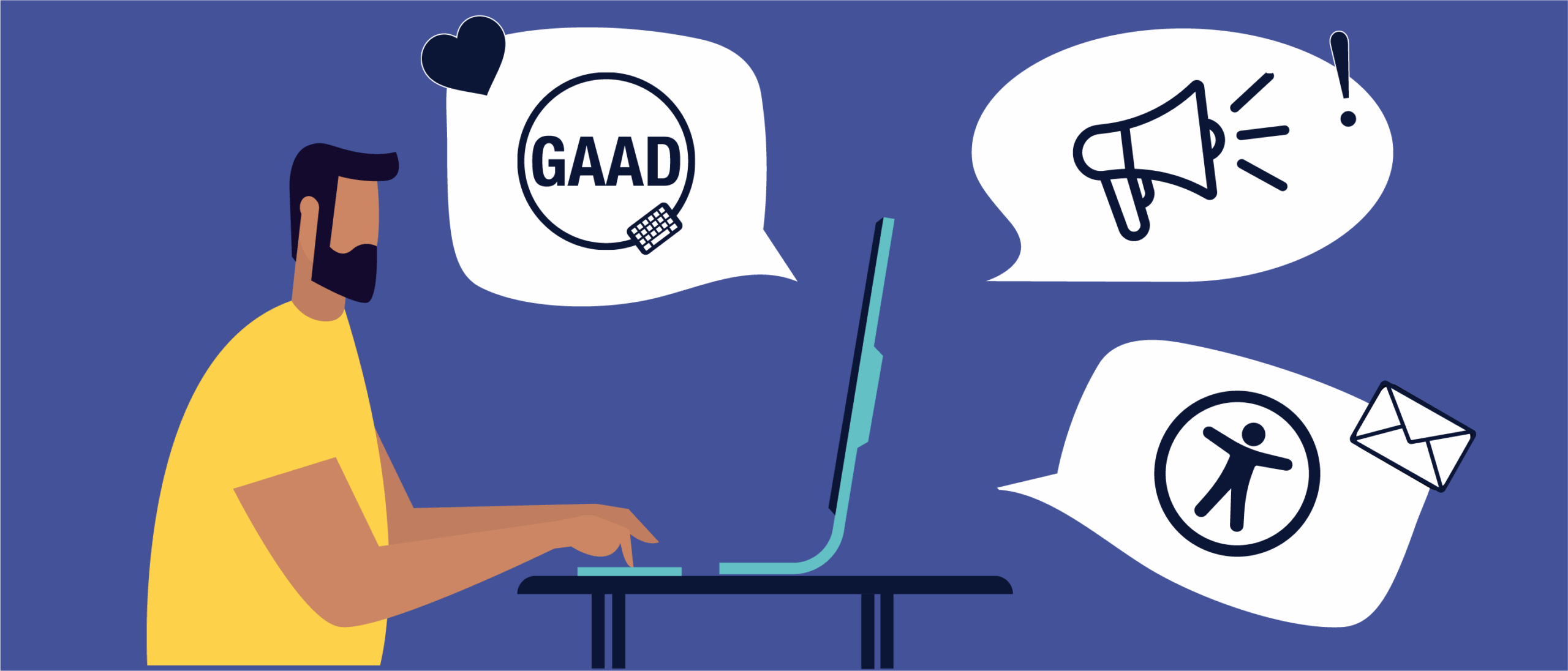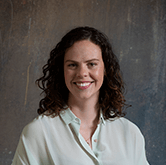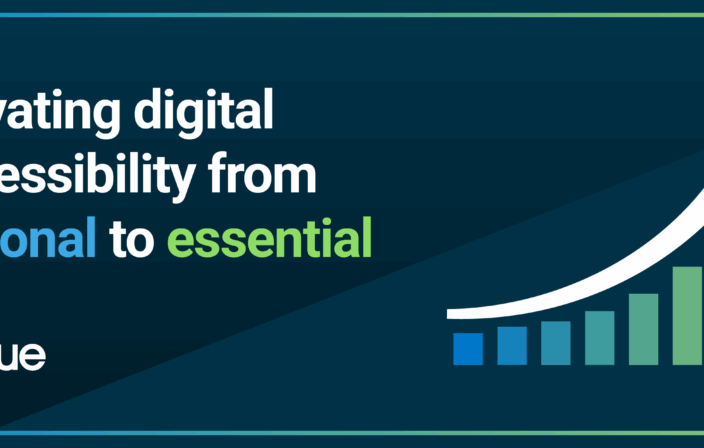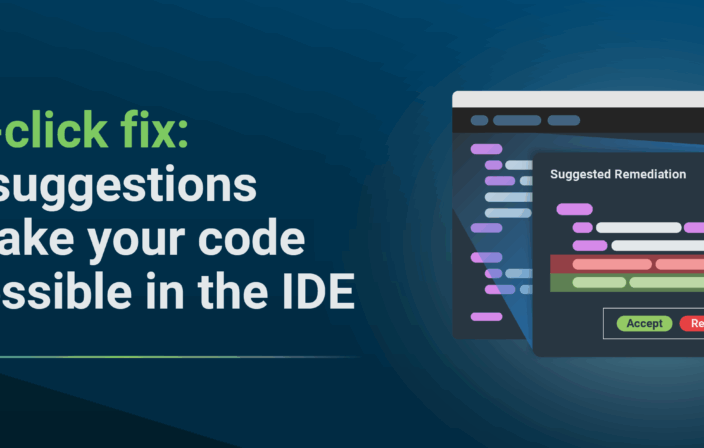It’s Global Accessibility Awareness Day! Global Accessibility Awareness Day (GAAD) comes around every year in May to draw attention to digital inclusion and access for people with disabilities, who make up approximately 1 billion people worldwide. While it’s important to highlight accessibility every day, GAAD is a great opportunity to spread awareness and think about ways to improve accessibility practices in your daily work and at your organization as a whole.
Accessibility awareness and action can take many forms, from #NoMouse Challenges to company-wide events. So in honor of GAAD’s 10-year anniversary, I reached out to a few Deque customers to find out how they’re honoring this accessibility holiday at their respective organizations.
Below you’ll hear from accessibility leaders at Verizon Consumer Group, Ally Bank, Intuit, and Workday. In their responses, you’ll learn about what these accessibility professionals find effective for spreading the word, what makes this year’s GAAD different from years past, and where they see the conversation around accessibility awareness going next. It’s my hope that their insights will spark inspiration for future Global Accessibility Awareness Days as well as ways to spread accessibility awareness year-round.
Chantell Harris, QA Manager, Accessibility Program & Shahira Ramzan Singh, Accessibility Program & Test Management, Verizon Consumer Group
“We’ve had to rethink how we’re connecting with people in this new space in a fresh way.” – Shahira Ramzan Singh
Grace Kirkley (GK): Tell me about the event Verizon is hosting this year for GAAD.
Chantell Harris (CH): In honor of Global Accessibility Awareness Day (GAAD), the Verizon Consumer Accessibility team will hold its Annual GAAD Accessibility Event on Thursday, May 20th. Attendees will join virtually to learn about accessible products and services, and why they are so important for our customers and employees. This event is invite-only and will include exciting conversations, presentations, and panel discussions on accessibility trends and regulations.
GK: What makes this year’s GAAD different from past years?
CH: Due to the pandemic, our teams are working remotely and customers are self-serving using digital solutions like the Verizon website and the My Verizon app. There is a stronger focus on accessibility to ensure employees with disabilities and customers with disabilities have access to the information they need in real-time. Verizon is committed to accessibility for all.
GK: What types of conversations is your team having around GAAD this year?
Shahira Ramzan Singh (SRS): The discussions we’re having during GAAD this year reflect a strong shift towards digital. There’s a big emphasis on the digital channel. Verizon has been focused for years on driving digital-first, so it’s as if we have been preparing for this. To optimize the digital experience for all of our customers and employees, we strive to meet the online accessibility standards recommended by the World Wide Web Consortium (W3C) in its Web Content Accessibility Guidelines (WCAG) 2.1 AA.
GK: How are you adapting to fully virtual events?
SRS: The Global Accessibility Awareness Event and our annual Accessibility Summit in October have pushed us to kick it up a notch and think outside the box. At our previous events for GAAD, we held a tech expo, in-person event, in-person demos, and meetings, but this year we’ve moved to a fully virtual event. We’ve had to rethink how we’re connecting with people in this new space in a fresh way.
Sabrena Foxx, Accessibility Program Director, Ally Bank
“We’ve shifted our discussions from just awareness to promoting an inclusive culture focused on education, support, advocacy and awareness.” – Sabrena Foxx
GK: What’s Ally doing to commemorate GAAD this year?
Sabrena Foxx (SF): Ally’s Digital Transformation Accessibility team will be hosting Ally’s 4th annual Ally Global Accessibility Awareness Month (GAAM) throughout the month of May to increase awareness about the daily challenges of digital interactions for accessibility users. We have three industry speakers joining us to share legal updates, personal stories and ways accessibility can improve technology. Our internal team will also host a session spotlighting new technology.
GK: How has working from home and shifting employees to a remote work setting changed how you’ve approached GAAD and other accessibility events?
SF: We were able to have virtual sessions last year, but this year we are taking it a step further by recording the sessions and enabling live captioning. We are also sending spotlights every Monday on our favorite axe-con sessions to serve as a tee-up for our weekly speakers. We are also celebrating Ally’s 5th year in the accessibility game by awarding awards to top accessibility performers and advocates!
GK: What’s up next for you and the Digital Transformation Accessibility Team?
SF: We are connecting the dots outside of digital by including the business lines we support and, in addition to inviting our tech and product teams, we are collaborating with our Disabilities Employee Resource Group. Overall, we have shifted our discussions from just awareness to promoting an inclusive culture focused on education, support, advocacy and awareness.
Ted Drake, Global Accessibility Leader, Intuit
“[Accessibility’s] become common knowledge instead of a specialized topic.” – Ted Drake
GK: How are you spreading accessibility awareness at Intuit in honor of GAAD?
Ted Drake (TD): In preparation for Global Accessibility Awareness Day, we’ve been working with our accessibility champions to publish a series of articles across Intuit’s websites about accessibility in May. It’s an opportunity to share what they’ve learned with the greater community. The topics this year include Personalization and Inclusive Design, analytics, and inclusive strategies for companies.
GK: Has the pandemic affected how you would typically share accessibility knowledge?
TD: This year, we’re still focused on remote participation and events. Previously, we’ve participated in in-person group events and look forward to doing that again in the future.
GK: How has the conversation around accessibility changed over time?
TD: Our accessibility awareness/action has become much more diverse. At Intuit, we’ve moved from discussions of alternate text and automated testing to broader subjects. For instance, in the past few weeks, we’ve had champions driving work on dyslexia, readability, closed captioning, ASL, keyboard accessibility, and mental health, and made a big change for Spanish language support that was driven by a request to the accessibility feedback channel.
We’ve found that accessibility conversations are growing organically within Intuit as we’ve increased the availability of easy-to-understand information, diverse topics, and expanded our Champion network. It’s become common knowledge instead of a specialized topic.
Tom Sikora, Director of Accessibility, Workday
“Accessibility has already become more visible and requires attention and consideration to deliver equal access and a better user experience for all, beyond meeting compliance.”– Tom Sikora
GK: What’s Workday doing to highlight Global Accessibility Awareness Day 2021?
Tom Sikora (TS): We are running an internal speaker series centered around upcoming technologies, design and development, and how people with disabilities navigate the world beyond technology.
GK: In your opinion, what’s the most effective way to spread digital accessibility awareness (and spark action)?
TS: Train. Train. Train. Additionally, leadership buy-in is important in ensuring employees are comfortable speaking about accessibility and are empowered to incorporate it into all aspects of the software development lifecycle.
GK: How has the COVID-19 pandemic shifted the conversation around GAAD?
TS: The pandemic required teams to work from home, which brought the need for accessible software to the forefront of conversations – how many tools needed to work remotely are accessible? This virtual environment actually increased accessibility engagement and knowledge sharing opportunities – when you’re remote, you can scale your outreach fairly easily.
GK: Thinking back to years past, how has the conversation around accessibility changed?
TS: Accessibility has become more visible and requires attention and consideration to deliver equal access and a better user experience for all, beyond meeting compliance. The conversation has moved from awareness and is now about how to start taking efforts in-house, growing internal advocacy programs, and incorporating accessibility thinking into the company culture. We are having more conversations about creating great user experiences rather than what it takes to resolve individual accessibility issues.
A big thanks to all who shared their insights and ideas in contribution to this post. Happy Global Accessibility Awareness Day!




